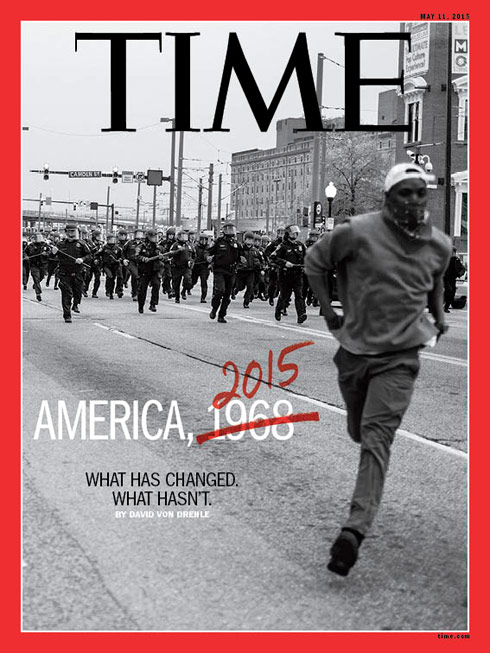After almost a year of blogging, I have learned an incredible amount about American culture and society. Yet, this weekend, I couldn't help thinking back to my very first post, "Book to Movie to Profit," in which I discussed how movie adaptations of books have become the norm. The past few days, it was Harry Potter weekend on ABC Family, a weekend dedicated to one of the greatest book-to-movie adaptations of all time. Turning J.K. Rowling's wizarding world of Harry Potter into eight movies earned the franchise over $7 billion at the worldwide box office. Clearly, the book-to-movie adaptation was a success.
Even though I've seen every Harry Potter film multiple times, I couldn't help tuning in for the Potter movie marathon. The beloved movies still interest me and countless numbers of others, despite many years since the release of Harry Potter and the Deathly Hallows: Part 2, the final film in the franchise. People today still love all of the Harry Potter films, opting to watch them over and over. Why can't Potterheads seem to get enough?
People seem to relate well to Harry, Ron, Hermione, and many of the other characters in the series. As the books progress, the characters grow up and undergo many experiences similar to those of real human beings. Harry Potter also seems to represent a "true hero" to many. People don't get tired of watching somebody they relate to and respect. The characters in J.K. Rowling's novels are more than just characters, they are symbols of people throughout the real world. The growth of the characters from children to adults is representative of the growth that all people experience. Watching the Harry Potter movies, in some sense, allows people to play back their own lives. As long as people continue to enjoy remembering their pasts, I don't think Harry Potter will ever get old.
American Studies
Monday, June 1, 2015
Thursday, May 28, 2015
No Country for Female Singers
I have never found the appeal in country music. Yet, many of my friends can't get enough of the southern sound. Whenever they tune into channel 99.5 on the radio, I cringe as they sing along to male voices with country twang. I rarely hear them singing along to female country singers, despite a few songs by Miranda Lambert, Carrie Underwood, or Taylor Swift. It turns out that country radio stations purposely avoid playing too many female artists in order to achieve the highest ratings possible. Keith Hill, the self-proclaimed "leading authority on music scheduling," insists that country music stations will acquire the greatest number of listeners by limiting the number of songs by female vocalists to 15%. He remarked, “If you want to make ratings in Country radio, take females out." Although Hill's comments shocked me, I thought he was just trying to advise radio stations to appeal to their audiences. Yet, many people viewed Hill's comments in a much more negative light.
 |
| Miranda Lambert |
Saturday, May 23, 2015
ALL Black Lives Matter
 |
| Time Magazine cover representing a lack of change from the 1968 to 2015 when it comes down to racism and police brutality. |
Yet, Rich Lowry of Politico Magazine recently argued that some people are worth more than others: "Let’s be honest: Some black lives really don’t matter." This comment angers me to my core. I completely disagree with Lowry. All lives, all races, all people matter. Lowry is trying to be clever, yet he comes off as completely racist. We, as a country, need to acknowledge that racism still exists. Otherwise, in 47 years, we will likely see another Time Magazine cover like the one to the left. We all need to admit that black lives matter and racism is unacceptable.
Sunday, May 17, 2015
America Bids Farewell to "American Idol"
With season 14 of American Idol finally wrapped up, it is clear that the show is losing its touch. This year, as I discussed in my blogpost "From Contestant to Judge on American Idol" back in March, the show took on a completely new format in order to attract more viewers. Unfortunately, Idol's decision to switch to one hour-long episode per week didn't do the trick. The season 14 finale rallied only 7.74 million viewers, down 26% from the 10.53 million who watched the season 13 finale last year. Clearly, the show is failing to appeal to Americans these days.
A few days ago, it was announced that Season 15 of American Idol will serve as the show's final season. After creating many stars, including Kelly Clarkson, Carrie Underwood, Chris Daughtry, and Adam Lambert, it seems that Idol has run its course. The show that inspired Americans across the country to chase their dreams of becoming successful singers no longer achieves the same reaction after 14 years of the same old, same old. New shows, like NBC's The Voice, have caused Americans to rethink what they want out of a singing contest. When it comes to TV, Americans get very picky. They always search for the newest, freshest take on television. American Idol has simply run for too long to maintain its "fresh" vibe. Everything dies out after awhile, including television shows. It's American Idol's time. I just hope it goes out with a bang.
 |
| Host Ryan Seacrest and Judges Jennifer Lopez, Harry Connick Jr., and Keith Urban, who will stay on American Idol for its final season. |
Monday, May 11, 2015
Where's the Middle Class?
As we have been discussing class during American Studies, I have become more aware of people trying to identify themselves with certain labels. When I came across this article in the New York Times, I thought it pertained to what we have studied in class. According to the article, the 2016 presidential candidates have been avoiding using the term "middle class" to describe most Americans. With the economy still unstable, even "middle class" seems unattainable to many people. The presidential candidates don't want to bring up that term since it no longer has the same positive connotation. Sarah Elwood, a professor at the University of Washington, claims, “The cultural consensus around what it means to be ‘middle class’ — and that has very much been part of the national identity in the United States — is beginning to shift.” Middle class is no longer something people want to strive for.
Even in the middle of the pack, many people these days struggle to live well-off. The real middle class has become extremely small, with the majority of Americans being fitting into either the upper or lower class. Now, the American class system looks like an hourglass, with barely anyone left to live comfortably in the middle. According to Felicia Wong, the president and chief executive of the Roosevelt Institute,“If you’re technically in the 50th percentile in income distribution but you can’t afford to send your kids to college or take a vacation, are you middle class or not?” The "middle class" simply isn't a real middle class anymore. If we don't start taking care of the lower class and creating more of a real middle class, I don't think our economy will become stable. No one can obtain the American Dream without the middle class.
Even in the middle of the pack, many people these days struggle to live well-off. The real middle class has become extremely small, with the majority of Americans being fitting into either the upper or lower class. Now, the American class system looks like an hourglass, with barely anyone left to live comfortably in the middle. According to Felicia Wong, the president and chief executive of the Roosevelt Institute,“If you’re technically in the 50th percentile in income distribution but you can’t afford to send your kids to college or take a vacation, are you middle class or not?” The "middle class" simply isn't a real middle class anymore. If we don't start taking care of the lower class and creating more of a real middle class, I don't think our economy will become stable. No one can obtain the American Dream without the middle class.
Thursday, May 7, 2015
Closing the Gap
 |
| CEOs earn 350x time more than the average worker |
Fortunately, I watched a story on the news recently about one CEO trying to reduce the gap between his earnings and the earnings of his employees. The CEO of Gravity Payments, Dan Price, decided to cut his salary from $1 million to $70,000 so that all of his employees could make at least a $70,000 annual salary in the next three years. Price's decision to raise the salaries of many of his staffers while cutting his own earnings was an extremely bold but incredible move. Price claimed that he was initially prompted to increase the pay of his employees after reading a study relating income to happiness. Additional income up to $75,000 makes a significant improvement in a person's overall emotional well-being. I hope more CEOs follow Price's lead and start to consider the well-being of their employees, as well. The world would become a much happier and more economically-stable environment.
Saturday, May 2, 2015
The End of Junior Theme, But Not of Film Violence
Sadly, people have also become desensitized to violence due to the constant exposure to violence through television and the internet. Yet, moviemakers still want to have an effect on their viewers. In the eyes of filmmakers, the only way to create a shock for the audience is to increase the amounts of violence in films with even more guns, explosions, blood, and death. As technology advances and people find more ways to access real-life violent images and video clips, this desensitization will only worsen. Therefore, at this rate, films will only increase in their amounts of violence. Somehow, the world is going to have get used to nonstop violence in all forms of media. Yet, it seems like we are pretty close to that point already.
Subscribe to:
Posts (Atom)



